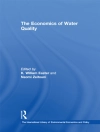Notions of land and agrarian reform are now well entrenched in post-apartheid South Africa. But what this reform actually means for everyday life is not clearly understood, nor the way it will impact on the political economy. In the Shadow of Policy explores the interface between the policy of land and agrarian reform and its implementation; and between the decisions of policy ‘experts’ and actual livelihood experiences in the fields and homesteads of land reform projects. Starting with an overview of the socio-historical context in which land and agrarian reform policy has evolved in South Africa, the volume presents empirical case studies of land reform projects in the Northern, Western and Eastern Cape provinces. These draw on multiple voices from various sectors and provide a rich source of material and critical reflections to inform future policy and research agendas. In the Shadow of Policy will be a key reference tool for those working in the area of development studies and land policy, and for civil society groups and NGOs involved in land restitution.
Inhaltsverzeichnis
Part One: Setting the Scene Land and Agrarian Reform in Post-Apartheid South Africa Chapter 1 Post-apartheid land and agrarian reform policy and practices in South Africa: themes, processes and issues – Paul Hebinck Chapter 2 Land and agrarian reform policies from a historical perspective – Paul Hebinck Chapter 3 Land reform and agriculture uncoupled: the political economy of rural reform in post-apartheid South Africa – Ben Cousins Part Two: ‚Mind the Gap‘: Discrepancies between Policies and Practices in South African Land Reform Chapter 4 Consultants, business plans and land reform practices – Francois Marais Chapter 5 ‘Seeing like a land reform agency’: cultural politics and the contestation of community farming at Makhoba – Yves van Leynseele Chapter 6 Land reform and newly emerging social relations on Gallawater A farm – Modise Moseki Chapter 7 Property rights and land reform in the Western Cape – Harriët Tienstra and Dik Roth Chapter 8 ‘Rent a crowd’ land reform at Survive and Dikgoho land reform projects – Limpho Taoana Chapter 9 Locating policies in the daily practices of land reform beneficiaries: the Mighty and Wales land reform farms – Malebogo Phetlhu Chapter 10 Where are the youth in land reform? The Vuki case – Petunia Khutswane Chapter 11 Land compensation in the upper Kat River valley – Robert Ross Chapter 12 In the shadows of the cadastre: family law and custom in Rabula and Fingo Village – Rosalie Kingwill Chapter 13 Land reform, tradition and securing land for women in Namaqualand – Karin Kleinbooi Part Three: Competing Knowledge Regimes in Communal Area Agriculture Chapter 14 What constitutes ‘the agrarian’ in contemporary rural African settlements of the central Eastern Cape? – Paul Hebinck and Wim van Averbeke Chapter 15 The Massive Food Production Programme: a case study of agricultural policy continuities and changes – Klara Jacobson Chapter 16 The Massive Food Production Programme: does it work? – Zamile Madyibi Chapter 17 ‘Still feeding ourselves’: everyday practices of the Siyazondla Homestead Food Production Programme in Mbhashe – Henning de Klerk Chapter 18 Cultivators in action, Siyazondla in action? Trends and potentials in homestead cultivation – Derick Fay Chapter 19 Smallholder irrigation schemes as an agrarian development option for the Cape region – Wim van Averbeke and Jonathan Denison Chapter 20 Cattle and rural development in the Eastern Cape: the Nguni project revisited – Ntombekhaya Faku and Paul Hebinck About the authors Index
Über den Autor
Yves Van Leynseele holds a Ph D in rural development sociology from Wageningen University (completed 2013) and currently works as a lecturer and postdoctoral researcher at the Department of Human Geography, Planning and International Development Studies at the University of Amsterdam.












